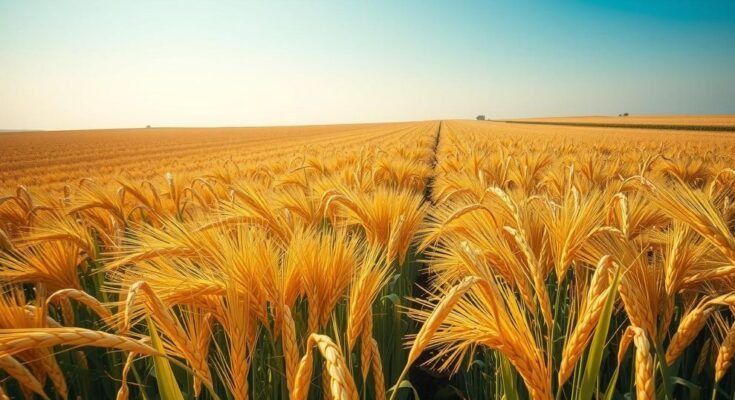Mozambique set a record for rice imports in 2024, spending USD 441 million, a 38.8% increase from 2023. This trend results from rising domestic consumption and declining production due to adverse climatic factors. The agricultural sector, crucial for the economy, requires government investment to alleviate dependency on imports and enhance food security for its citizens.
In 2024, Mozambique achieved a record in rice imports, emphasizing the country’s increasing dependence on foreign sources to meet its basic food needs. According to the annual statistical report from the Bank of Mozambique, the nation spent approximately USD 441 million for rice imports, reflecting a substantial 38.8% rise from the USD 317.7 million expended in 2023. This spike is attributed to heightened domestic consumption paired with reduced production driven by adverse systemic and climatic conditions affecting the agricultural sector.
Data from the National Institute of Statistics highlights a significant decline in rice production, decreasing by 34% to 161,800 tons in 2023, compared to the previous year. Numerous food crops have similarly suffered from diminished yields, with experts linking these drops to negative climatic events, including floods and droughts, alongside inadequate structural investments in irrigation and quality seeds.
In response to agricultural shortfalls, Mozambique has increasingly turned to imports, rendering the nation susceptible to international food price fluctuations and exacerbating food insecurity issues for impoverished populations. Maize production also experienced a decrease in 2023, with output declining by 11% to 2.12 million tons, although this reduction is less alarming given the significant increase seen in 2022.
Additionally, both sorghum and millet production witnessed marked decreases, with sorghum falling by 15% to 139,553 tons and millet declining by 32% to 17,098 tons. Collectively, these agricultural challenges and record import levels foster grave concerns in a nation heavily reliant on agriculture, which represents more than 20% of GDP. Despite the deteriorating climatic conditions, there remains potential for enhancing agricultural output through comprehensive government investment.
A report from the Inclusive Growth in Mozambique development programme emphasizes the critical need for sustained governmental investment in climate adaptation and structural improvements. Such measures could diminish reliance on costly imports while fostering job creation, income generation, and increased food security for millions of Mozambicans, simultaneously strengthening the national economy.
In summary, Mozambique’s escalating rice imports in 2024 highlight a concerning trend of reliance on foreign food sources amid agricultural challenges. With significant declines in domestic food production due to adverse climatic and structural issues, the government faces the urgent need to invest in agricultural development. By prioritizing these investments, Mozambique could reduce its dependency on imports, enhance food security, and rejuvenate its agricultural sector, thereby boosting overall economic stability.
Original Source: macaonews.org




